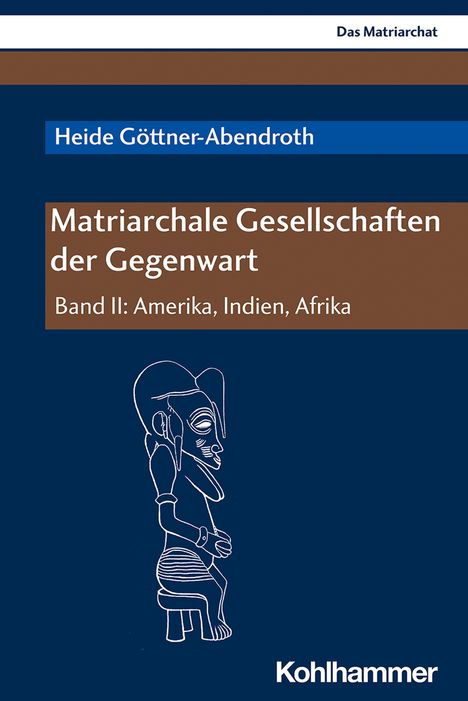Heide Göttner-Abendroth: Matriarchale Gesellschaften der Gegenwart, Kartoniert / Broschiert
Matriarchale Gesellschaften der Gegenwart
- Band II: Amerika, Indien, Afrika
- Verlag:
- Kohlhammer W., 01/2022
- Einband:
- Kartoniert / Broschiert
- Sprache:
- Deutsch
- ISBN-13:
- 9783170393820
- Artikelnummer:
- 10380485
- Umfang:
- 290 Seiten
- Sonstiges:
- 37 Abbildungen, 9 Kt.
- Gewicht:
- 436 g
- Maße:
- 232 x 157 mm
- Stärke:
- 20 mm
- Erscheinungstermin:
- 26.1.2022
Weitere Ausgaben von Matriarchale Gesellschaften der Gegenwart |
Preis |
|---|
Klappentext
Modern matriarchy research is once again making accessible this completely different form of society - which is not an inversion of patriarchy. The way in which we conceive of matriarchal societies is being increasingly enriched through comparative cultural analyses. This approach affects and alters every sociocultural area of our knowledge. Modern matriarchal research therefore now constitutes part of basic research. This volume continues comparative cultural analyses of contemporary matriarchal societies. It is particularly concerned with the large-scale forms of matriarchal societies, which disprove the prejudice that they are only small, isolated communities. The new paradigm of modern matriarchal studies is thus becoming increasingly richer in content. This expanded new publication of Volume II is devoted to contemporary matriarchal societies in Africa, India and the Americas. The previously published new edition of Volume I presents contemporary matriarchal societies in East Asia, Indonesia and the Pacific. The newly published Volume III (2019) focuses on the history of matriarchal societies and the emergence of patriarchy in western Asia and Europe.
Biografie
Heide Göttner-Abendroth, geb. 1941, ist Philosophin und Kultur- und Gesellschaftsforscherin. Sie hat zwei Töchter und einen Sohn. 1973 promovierte sie an der Universität München in Philosophie und Wissenschaftstheorie und lehrte anschließend zehn Jahre in München Philosophie. 1976 schloss sie sich der Neuen Frauenbewegung an, wurde zu einer Pionierin der Frauenforschung und zählt durch mehr als dreißigjährige Forschungsarbeit zu den Begründerinnen der modernen Matriarchatsforschung. 1986 rief sie die autonome "Internationale Akademie HAGIA" bei Passau ins Leben, deren Leitung sie seither innehat.§Anmerkungen:
Bitte beachten Sie, dass auch wir der Preisbindung unterliegen und kurzfristige Preiserhöhungen oder -senkungen an Sie weitergeben müssen.




